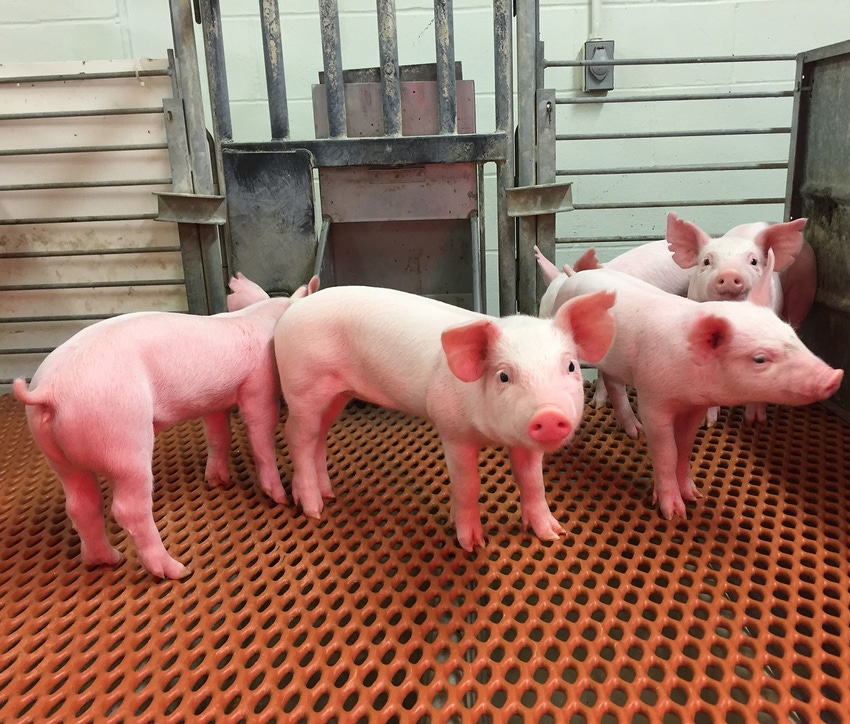Grant to help MU establish Swine Somatic Cell Genome Editing Center
Based on the success of using reagents to create resistance to deadly porcine viruses like PRRS and TGEV, the center will focus on finding similar breakthroughs for human diseases.
June 27, 2019

University of Missouri researchers in the College of Agriculture, Food and Natural Resources have received an $8.6 million grant from the National Institutes of Health to establish a new national research center. The Swine Somatic Cell Genome Editing Center will focus on aiding the development of biomedical treatments for human diseases such as cystic fibrosis.
The center will be tasked with creating protocols to evaluate the safety and efficacy of reagents, which are the tools researchers use to edit and repair disease-related genes. In supporting the translation of swine research into treatments for human diseases, the center’s mission will align with MU Chancellor Alexander Cartwright’s translational precision medicine initiative, which — in addition to setting the goal of doubling research funding and developing projects such as the precision medicine complex — calls for adding three to five national, externally funded centers by 2023.
“As new gene-editing tools come down the pipeline, this center will develop more efficient processes to apply them to disease treatments,” says Kevin Wells, co-lead researcher on the NIH grant and an associate professor of genetics in MU’s Division of Animal Sciences. “The first two years will focus on developing standard operating procedures and testing the efficacy of those procedures. When that is done, we will start applying those procedures to promising new therapies.”
The new center will be the latest expansion of the NIH’s Somatic Cell Gene Editing Consortium, which aims to develop quality gene-editing tools and make them available to researchers. With thousands of diseases known to have genetic causes, and amid the rapid rise of technologies that can precisely modify genes, MU’s center — the first NIH-funded center of its kind — intends to create safe, more efficient and cost-effective processes to translate this knowledge and technology into real treatments.
“We have had success using reagents to create resistance to deadly porcine viruses like PRRS and TGEV, and now this center will help pave the way for transforming similar breakthroughs into benefits for humankind,” says Randy Prather, co-lead researcher, director of the National Swine Resource and Research Center and Curators’ Distinguished Professor of Animal Science at MU. “We will likely see applications for livestock and agriculture, but these will be secondary. Our primary concern is human health.”
The NIH grant will be disbursed over five years.
Source: University of Missouri, who is solely responsible for the information provided, and wholly owns the information. Informa Business Media and all its subsidiaries are not responsible for any of the content contained in this information asset.
You May Also Like



